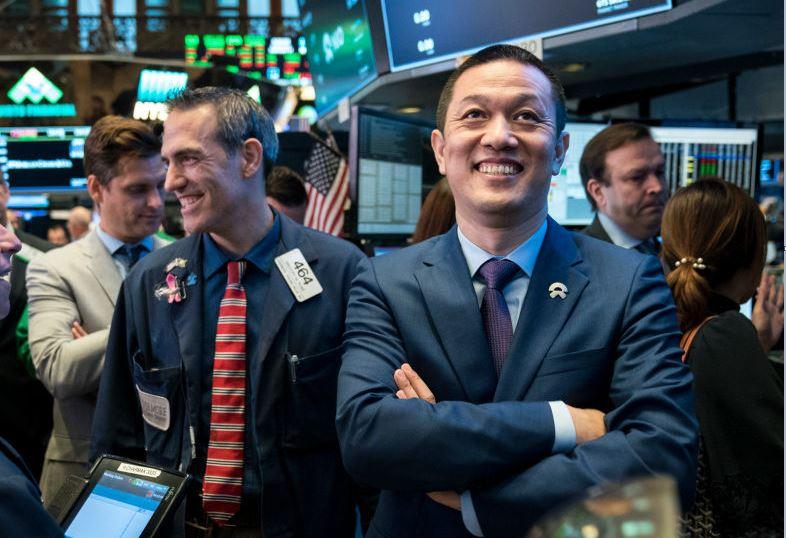Coming off the back of yesterday’s Biden-inspired $2trn infrastructure push higher in the US, European markets have got off to a solid start to April, after the latest manufacturing PMIs for Europe showed that despite the various lockdowns affecting the region, that this part of the economy at least is firing on all cylinders.
While German manufacturing led the way there was decent activity in France, Italy and Spain with orders looking strong across the board. Services activity may be weak domestically but overseas markets and demand looks strong, while costs also increased largely due to supply chain considerations.
The DAX continued to push up to new record highs, while the FTSE 100 continues to frustrate despite rising optimism over a UK reopening, while the FTSE 250 looks set to retest its March peaks.
The best performers today have been the likes of Melrose Industries, Rolls-Royce and Ferguson, while general retailers are enjoying a good day after Next raised its guidance for the upcoming fiscal year for pre-tax profits of £700m, from £670m, with total sales expected to rise by 18%, an update which sent the shares to a new record high.
It’s no secret high street retailers have struggled, with the various restrictions and lockdowns hampering their business models, and while Next has managed to adapt better than most, it doesn’t mean that it’s been a completely seamless adaptation. Next’s decision to upscale the picking capacity of its warehouse operations very early on, in order to improve the on-line business, as well as delivery times, appears to have paid off handsomely. Frasers Group and JD Sports are also up on the day.
With the likes of ASOS and Dunelm also reporting next week and an economic reopening of non-essential retail taking place in less than two weeks, hopes are high in the sector of a strong rebound in suppressed demand, as Q2 and the summer season gets under way, and it is this expectation that is boosting confidence.
A slight softening in yields is weighing on the banks which are slightly lower on the day.
Deliveroo shares appear to have stabilised after a nightmare first day of trading yesterday, amidst speculation that the shares were victims of short selling, concerns about future profits and a share structure that concentrates voting power towards CEO Will Shu.
All of these are valid criticisms of the valuation; however, they are hardly unique to Deliveroo, there have been plenty of US listings that have been on the receiving end of similar critiques over the years. I recall making similar observations over Snap a few years ago, and while the shares more than halved initially, they are now well over double their IPO price.
Deliveroo’s biggest problem was around timing, at a time when the UK is on the cusp of an economic reopening, a valuation that was somewhat on the high side, and lockdown stocks being broadly in retreat, the timing was off. A few months ago, the willingness to pay a premium might have been an easier case to make. Now not so much.
As Harbour Energy begins its first day of trading after its name change from Premier Oil, the shares of the UK’s largest listed independent oil and gas company have slipped back sharply. Its guidance for 2021 saw the company announce production of 200bpd to 215bpd, with operating costs expected to be in the region of $15 a barrel.
The new net debt figure stands at $2.9bn, with current liquidity of $700m.
US
Having tried and failed to push up through the 4,000 level yesterday the S&P 500 had another crack at it again today, this time successfully, after weekly jobless claims edged up to 719,000, while the week before was revised lower to 658,000. The rise in claims was a little surprising given the sharp rise in US consumer confidence through the month of March. Nonetheless continuing claims continued to fall, slipping below 3.8m to 3.794m and a post-pandemic low.
Microsoft shares are higher in the wake of yesterday’s $21.9bn deal with the US Army for augmented reality headsets.
Micron Technology shares along with Western Digital have also moved higher on reports that they are looking at a $30bn deal to acquire Kioxia, a Japanese chip firm.
Vaccine problems don’t appear to be unique to AstraZeneca, after Johnson & Johnson reported problems with a batch from its Baltimore factory, made by Emergent BioSolutions, which they said they would be discarding due to falling short of quality standards. The problems call into question the pledge by J&J to deliver 100m doses by the end of June.
FX
There’s not too much downside in the US dollar despite a slightly higher weekly jobless claims number, with the euro rebounding off a five-month low after this morning’s stronger than expected manufacturing PMIs gave the single currency a lift. US 10-year yields have slipped back below 1.7% in the wake of the latest claim’s numbers, however any downside in yields is likely to be tempered ahead of tomorrow’s US non-farm payrolls report. Today’s ISM Manufacturing report was also a rip-roarer, coming in at 64.7, the highest level since 1983, with prices paid coming in at 85.6 and employment rising to 59.6.
Even if the jump in the employment component isn’t reflected in tomorrow’s payrolls numbers, it’s likely it will be in subsequent months, although next week’s services numbers are likely to be more instructive in that regard.
The euro has continued to slide against the pound dropping below 0.8500 for the first time in over a year, as the pound continues to outperform its peers. In the G10 currency space the pound, along with the Canadian dollar is the best performer against the US dollar, since the beginning of the year.
Commodities
After sliding back yesterday crude oil prices are back higher again after today’s solid economic reports, and ahead of today’s OPEC+ meeting on production output.
It seems highly unlikely that the various members will look at increasing supply much before June, which means that while manufacturing demand looks fairly solid, the various restrictions on European consumers are likely to act as a headwind for demand. The Saudi oil minister laid out his case for keeping output where it is given the uncertain nature of the recovery.
The slight softening in the US 10-year yield is introducing a bit of a bid into the gold price, which is now up for the second day in succession, having rebounded off the $1,670 level for the second time in four weeks yesterday.
CMC Markets erbjuder sin tjänst som ”execution only”. Detta material (antingen uttryckt eller inte) är endast för allmän information och tar inte hänsyn till dina personliga omständigheter eller mål. Ingenting i detta material är (eller bör anses vara) finansiella, investeringar eller andra råd som beroende bör läggas på. Inget yttrande i materialet utgör en rekommendation från CMC Markets eller författaren om en viss investering, säkerhet, transaktion eller investeringsstrategi. Detta innehåll har inte skapats i enlighet med de regler som finns för oberoende investeringsrådgivning. Även om vi inte uttryckligen hindras från att handla innan vi har tillhandhållit detta innehåll försöker vi inte dra nytta av det innan det sprids.






